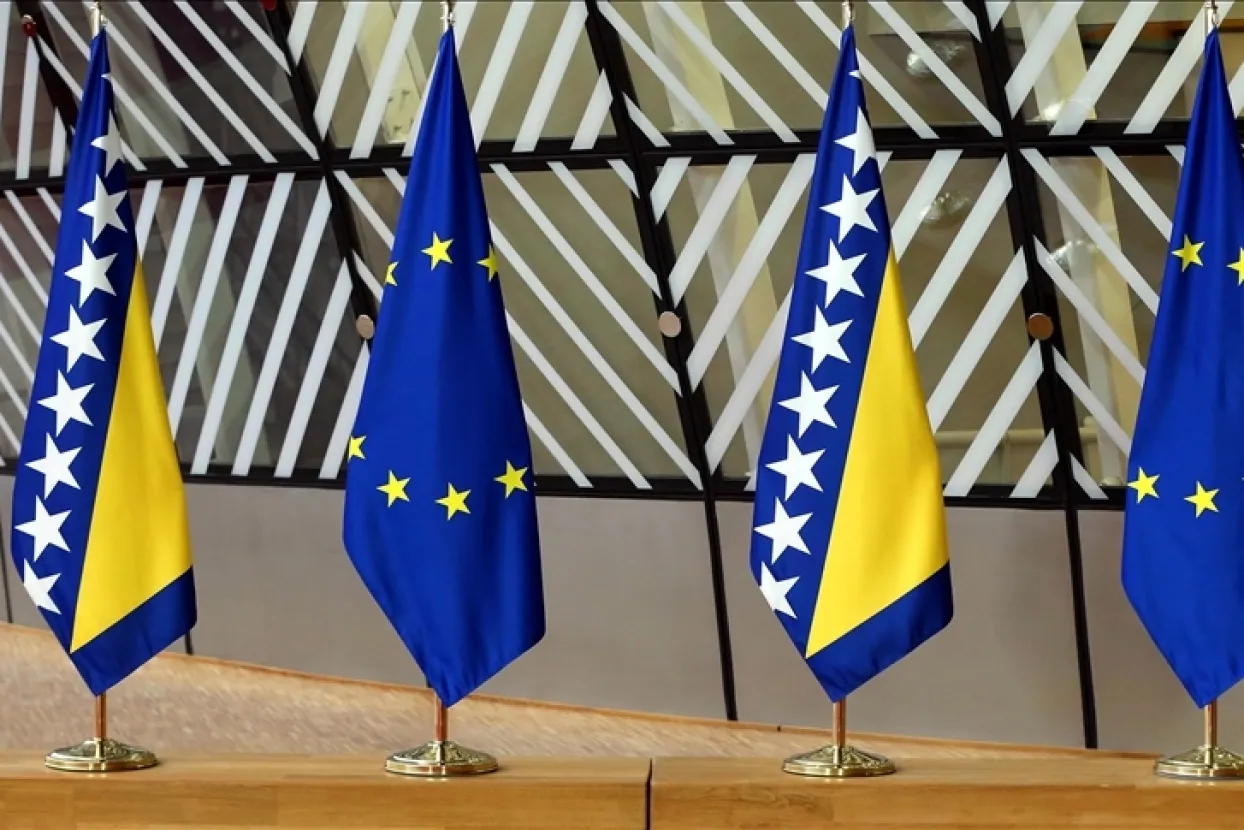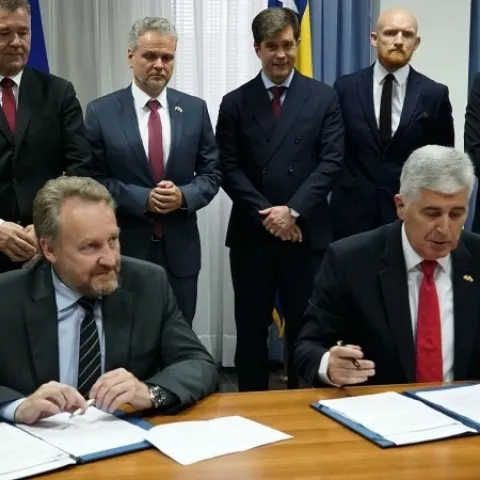

Bosnia and Herzegovina in the "Imperial Abyss"
Bosnia and Herzegovina in the "Imperial Abyss"
The principle of constituent peoples and legitimate representation is not in collision with the European tradition of democratic political representation, which was directly confirmed by Venice Commission. Indeed, many countries (ex. Belgium) and regions (ex. South Tyrol) in Europe have rebuilt their social structure and created stable institutions through the mechanisms of federalism and power sharing.
Author: dr.sc. Dražen Barbarić, University of Mostar, Institute for Social and Political Research Mostar - IDPI
Any serious diagnosis of the situation in Bosnia and Herzegovina (B&H) must start from three fundamental absences: common statehood, a form of the political system and future vision of development. Political actors in B&H 26 years after the Dayton Agreement have not made any moves regarding these issues. The international community has tried to compensate for these three absences, but measured by two elements - increased state functionality and national reconciliation, they have not been very successful in their plan. On the contrary, their activities have become a part of the problem, and they are often perceived as biased.
In the current political constellation of B&H, there are two mutually exclusive political vectors. The first is the centripetal, materialized through the dominant Bosniak party SDA, which in its programs does not hide that their vision of a desirable future statehood is a unitary state with a certain degree of regionalization, in accordance to some very vague criteria. This vector bases its territorial mode on the entire B&H territory, which causes fear among the other two constituent peoples.
The vector opposite to it is centrifugal, specifically represented through the dominant Serbian party SNSD. It seeks to further loosen the existing state structure and the institutions built on it, occasionally playing on the card of the threat of secession. Its territorial framework is exclusively the territory of the Republic of Srpska, which it perceives as a de facto state entity.
Between these two vectors, there is a federal one, represented by Croatian political actors. However, it is the smallest one and does not have the strength to prevail in the conflict between the Serb and Bosniak vectors. It is especially worrying that the last two vectors mentioned are not localized manifestations, but are embedded in a broader geopolitical structure. On the one hand, the centripetal vector is related to the patronage of the current Turkish regime, Recep Tayyip Erdogan, who sees B&H as a former border area of the Ottoman Empire, to which Turkey lays down specific cultural and political rights and obligations. On the other hand, the centrifugal is related to the Russian regime of Vladimir Putin, which sees the Republic of Srpska as a puppet entity through which it maintains and strengthens Russian influence in the Western Balkans.
It is especially problematic that two prominent politicians of the before mentioned vectors, Bakir Izetbegović and Milorad Dodik, have personalized relations with the leaders of Turkey and Russia, and consider them as personal patrons. Linking the Serb and Bosniak political elites to two autocratic regimes that create a deep distortion of European security and political architecture is a fact that should cause serious fear among B&H citizens and real concern for the democratic part of the international community.
The 'old approach' of the international community has not yielded the desired results, nor has it prevented the spread of the malignant influence of these two authoritarian forces, so it is high time to turn things around.
The effort to turn things around would consist of a few steps. The first is the necessary relaxation of relations in the Federation of B&H between Croats and Bosniaks through changes in the electoral legislation. The fear within the Croatian community that the international community favours the majority principle which would pave the way for Bosniak hegemony under the auspices of the 'civic state' must be removed.
The principle of constituent peoples and legitimate representation is not in collision with the European tradition of democratic political representation, which was directly confirmed by Venice Commission. Indeed, many countries (ex. Belgium) and regions (ex. South Tyrol) in Europe have rebuilt their social structure and created stable institutions through the mechanisms of federalism and power sharing. Furthermore, European Parliament in its Resolution from 2015. regarding B&H explicitly "calls on the authorities to actively promote the principles of legitimate representation, federalism, decentralisation and subsidiarity".
The Dayton Accords is no different from the Good Friday Accords. Both agreements have brought peace after years of violence and left it possible for communities to agree on a different model when the conditions are right. Functionality of this approach is shown by the example of the City of Mostar, which has become a mirror example of coexistence and national political cooperation through the mechanisms of power sharing and legitimate representation. The re-establishment of equality between communities in B&H would restore the confidence of all communities in cooperation and joint work for a prosperous B&H, which would thus become capable of meeting the conditions for EU and NATO membership.
The second step is to preserve the existing constitutional structure and state institutions (such as armed forces, intelligence structures, taxation administration). Thus, a functional central state can be built through dialogue on the foundations of federal mechanisms.
The last step is to open a sincere perspective of European integration with the necessary creation of a minimum common denominator of vision of future statehood. This step must be the overlapping consensus of the representatives of all three constituent peoples and all other citizens. Summarized, stubborn insistence on imposing external solutions or biased actions by the international community in favour of the majority nation will only lead to deepening of political paralysis, distancing B&H from Brussels and pushing it to a clinging to two potentially malicious autocratic imperial regimes.
Note: the analysis was originally written for the RUSI Institute in London, however, due to ignorance by the editors the text was never published.
Dnevnik.ba
